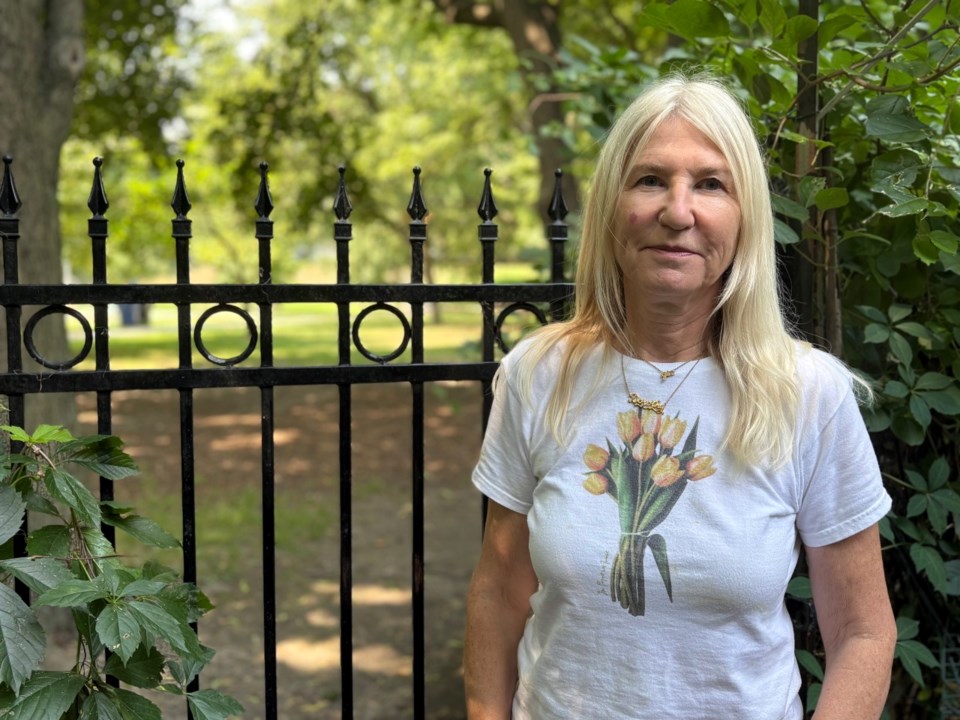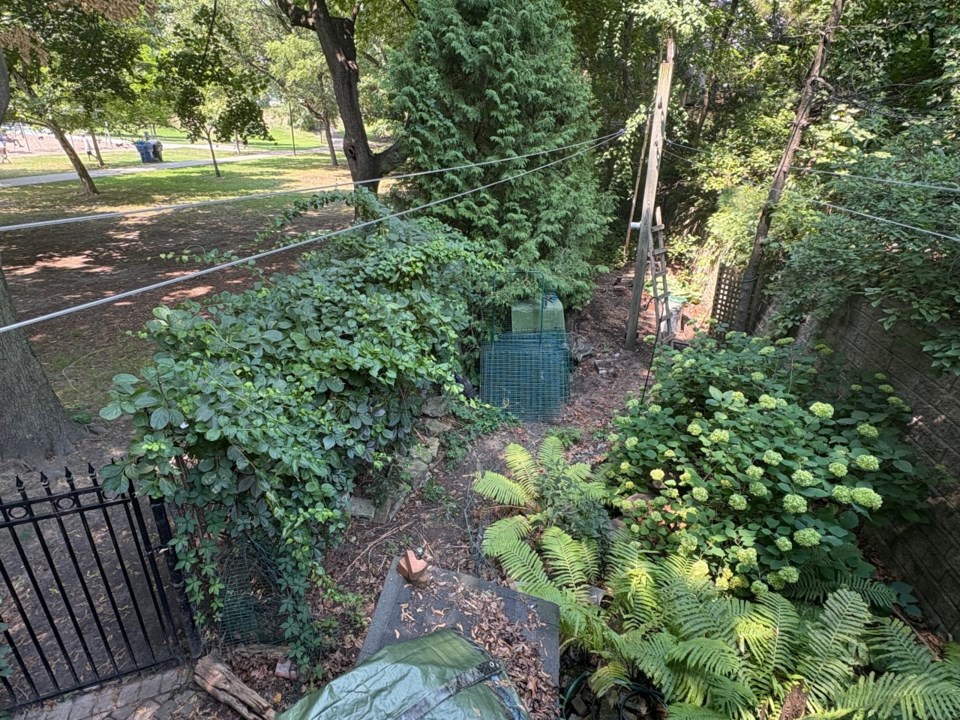The UrbanHensTO pilot program was paused in 2023 over avian flu concerns and will remain so until further notice, says the city
Over the past few weeks, Toronto resident Virginia Rankin has been dismantling the elaborate chicken coop she used for about seven years to care for a flock of backyard birds she dubbed “the girls.”
The decision came after her final hen died last month, and she said it’s based on a belief the city will never resurrect the program that allowed her to keep the chickens behind her High Park home in the first place.
In 2018, Rankin was one of the first people to participate in the city’s UrbanHensTO pilot program. The 5-year program allowed residents in select wards to keep a small number of female chickens in their backyards for fun and for egg production. Owing to noisy cock-a-doodle-doo concerns, roosters were barred.
The pilot did not have significant uptake, but was popular with a small group of devotees.
“I enjoyed knowing where my eggs came from and knowing that my hens had a really nice life,” said Rankin. “They’re also just really relaxing animals to watch.”
But in 2023, after vocal opposition from animal welfare groups, city council paused the program over cost concerns and worries the birds could contribute to the spread of highly pathogenic avian influenza. The 85 households who already had hens at the time were allowed to keep them until the end of the animals’ lives.
But council left the door open by asking staff to report back by June of this year about potentially resurrecting the program.
However, chicken-loving residents will be disappointed.
On Wednesday, a city spokesperson told TorontoToday that staff have deferred their exploration into bringing back the program “until further notice,” given persistent outbreaks of avian flu.
Across Canada, more than 14 million birds have died as a result of avian flu, including those that were killed to ensure food safety, according to the Canadian Food Inspection Agency. In Toronto, two snowy owls and another wild bird this year tested positive for bird flu.

Torontonian Virginia Rankin in her back yard near High Park on Aug. 14, 2025. Rankin was one of the city’s first residents to participate in the UrbanHensTO pilot program. Gabe Oatley/TorontoToday
Bird flu: An ‘excuse’ or a real concern?
In an interview with TorontoToday on Thursday, Rankin said the city’s indefinite pause is disappointing. She also believes the municipality’s concern about bird flu is an “excuse” to shut the program down.
“[Avian flu is] really an issue primarily with factory birds and birds living in crowded conditions,” she said. “I think they just didn’t want to do it because it was just a bureaucratic decision.”
In a 2023 report to council, staff noted the expansion of the UrbanHensTO program citywide would cost an additional $500,000 to hire several new animal control staff and one supervisor.
However, Kaitlyn Mitchell, director of legal advocacy with the animal rights group Animal Justice, said the concern about avian flu spreading among urban bird populations is a legitimate threat, and as a result, the City of Toronto has made the right decision.
“The reality is having chickens in backyards across the city – in enclosures that may or may not be constructed to standards – it does increase risk of disease spread,” Mitchell said.
Chickens can help educate kids
Dianne Cordero, a participant in the UrbanHensTO pilot program and resident of the city’s east end, also said the continued program pause has been disappointing for her family.
After the program was first introduced in 2018, Cordero said she rented a pair of chickens during the warmer months. (The company that provides this service, Rent the Chicken, takes them back over the winter when it’s more difficult to care for the birds.)
She said the experience was fantastic, and provided her young daughter with a chance to learn where eggs come from at a time when many city kids only connect eggs with the carton they get from the grocery store.
Cordero said the city’s decision to keep the program on ice is “short-sighted,” noting that other cities with similar programs, like New York, have managed to make it work.
Rankin said she wished animal rights groups had focused their ire on factory farms, where she said the major welfare concerns arise.
Concern about vet access
Mitchell said Animal Justice focuses much of its resources on fighting factory farming, but stressed bird flu isn’t the only concern with the program.
She noted that there aren’t many Toronto-area veterinarians who specialize in chickens, making it difficult to ensure the hens are getting sufficient care.
But Cordero said she had found a veterinarian with experience caring for hens who lived outside of the city, but visited Toronto for a few days each week.
Rankin, too, said her birds were treated with significant care.
Despite the fact their last surviving chicken had stopped laying eggs last year, Rankin said she continued to care for the bird until the end of her life in July.
“These are the happiest chickens you’re ever going to see,” she said.

The elaborate chicken run in Virginia Rankin’s backyard was in the process of being dismantled on Aug. 14, 2025. Gabe Oatley/TorontoToday
A ‘hobby’ for the affluent?
But Mitchell said if the City of Toronto wants to boost urban agriculture, there are more equitable ways to do it than allowing backyard chickens.
Stressing the program is costly for the municipality to run, Mitchell noted that many of the program’s participants are affluent themselves.
“It’s a fun hobby for many wealthier Torontonians,” she said. “But to invest those public resources in, essentially an activity that more privileged folks enjoy, I just don’t think is justified.”
A 2022 city survey of UrbanHensTO pilot participants, found 67 per cent had a household income of $100,000 or more, and 40 per cent said they had a household income of $150,000 or more.
Rankin didn’t dispute that criticism, noting apartment dwellers couldn’t participate in the program.
Nonetheless, she said her birds didn’t just benefit her household. Living directly adjacent to a park, she said kids and their caregivers from across the community would often come and watch the chickens in the yard.
Since her last hen died, she said children have kept coming, looking for the bird.
‘Rewilding’ the city?
Rankin said she’d like to see Toronto bring back the urban chicken program eventually.
“A lot of people have this thing that ‘The city is the city, and you can’t have farm animals in the city.’ I don’t see that. I disagree,” she said.
“I think we’re seeing that the city is rewilding itself … and I think it’s a positive thing for people to know where their food comes from — and children can grow up seeing that.”


Comments are closed.